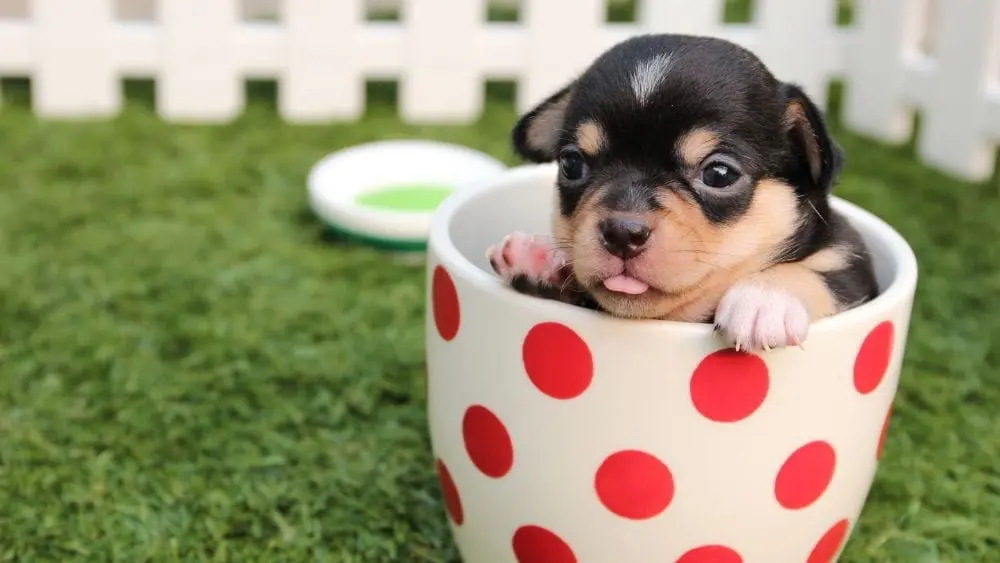
New homes and new puppies go together like two peas in a pod. With all that space, it makes sense to want to share it with a furry friend. Puppies help families learn responsibility, and as dogs grow with you, they make wonderful companions.
That being said, it’s easy to feel you’re in over your head when you actually bring a new pup home. To help, here are a few key tips to make sure you, your four-legged friend, and all of your material possessions make it through the transition.
Family Meeting
Before deciding to bring a pup home, make sure everyone in the home actually wants a dog. The whole family should be on board so the new puppy comes home to an excited, loving family.
With everyone on the same page, outline consistent rules and expectations. Who will feed and takes the pup outside? What commands will you use so the puppy doesn’t get confused? Will they be allowed on furniture? The more unified front the family presents, the easier it will be for your new dog to understand expectations and his place in the household.
Puppy’s New Space
Unless you planned ahead, you probably don’t have a second master suite waiting for your puppy to claim. Designate a specific place in the home for her to eat, sleep, and play, as the unsupervised reign of the house begs for accidents and chewed-up baseboards. Clear out valuables and hazards to keep your pup, and your things, safe.
Tip: Make sure the puppy containment zone has easy-to-clean floors. Interested in heading off indoor accidents early? Make each successful outdoor potty break a celebration, and he’ll understand in no time what the rules are.
Little Explorer
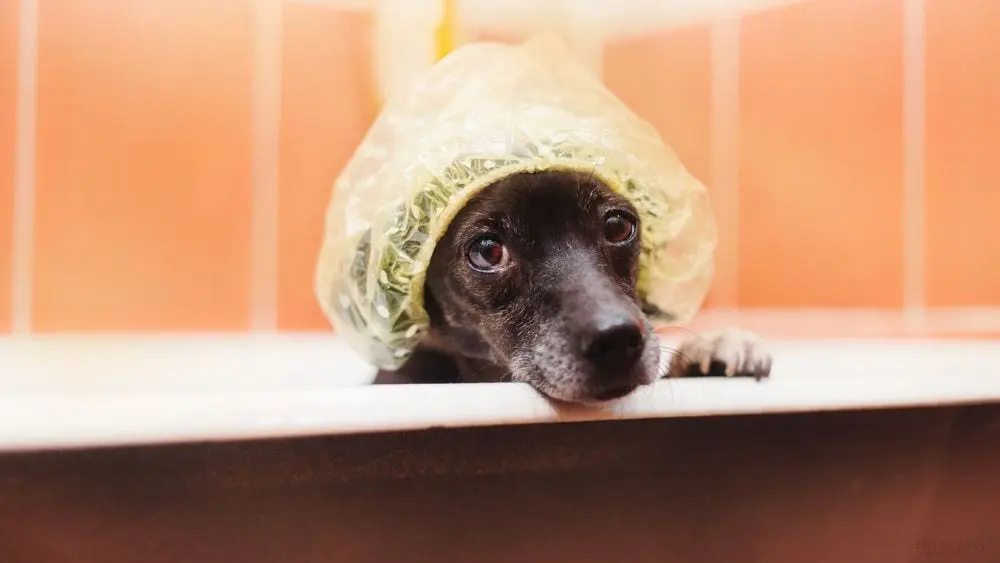
As your puppy gets older and completes her vaccinations, let her wander around the home and backyard. Similar to the original puppy playpen, keep valuables and anything potentially dangerous out of sight and reach. Wrap and hide electrical cords, store beloved toys, and, if needed, keep certain rooms or spaces fenced off. An easy-access baby gate at the bottom of the steps is a great investment.
If your dog is spending time outside, prep the backyard. Holes in or below the fence, or weak planking, can make your dog an expert escape artist. Regularly check your fence to prevent problems from developing. Store gardening tools from your doggo so your pup can’t hurt himself and take care of any biting or stinging bugs.
Tip: Puppies mature at different rates and some habits are hard to break. Any unsupervised pup can get into trouble or injure herself. Don’t let her wander without a human around (or with only little humans) until she’s older.
Fido the Destroyer
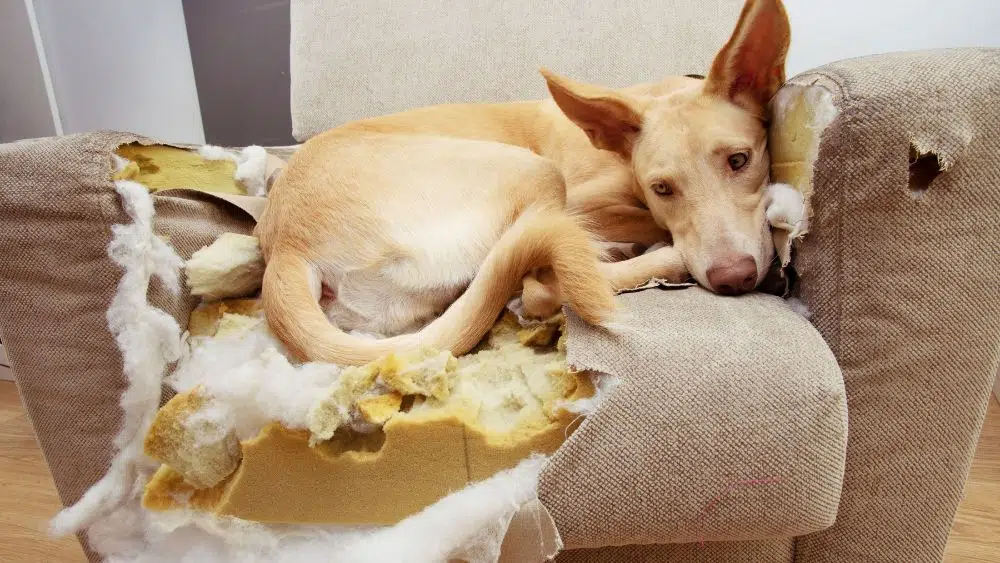
We all know puppies get instantly less cute when they make a mess of things, and even with all the preventatives in the world, accidents happen. Expect bathroom breaks on the new hardwood floors, or using the expensive dining room set as a chew toy.
Here are a few common problems to anticipate, and how to handle them.
Indoor Accidents
Whether on carpet, hardwood, or tile, the first step is to remove excess moisture and solid waste as soon as possible. The longer it sits, the more odors and stains will set. Grab a trusted pet carpet/floor cleaner and restrict access to the space until the product has completely dried.
Tip: Instead of spanking after an accident, work on positively reinforcing doing business outdoors with praise, pets, and training treats.
Chewing
Similar to babies, puppies go through a teething phase. Unlike (most) children, dogs also chew as a sign of anxiety, discomfort, and general boredom. If you catch your dog in the act, verbally reprimand them with a command such as “No!”
Strong chew toys and challenge toys are a great fix for dogs who chew out of boredom or natural instinct. Another option is taste repellent sprays. If your dog has a favorite bookshelf he likes to munch on, spray the chewed edges with some bitter-tasting treatment (that’s still safe to ingest!) to deter him.
Tip: If you find evidence of chewing after the fact, leave them be. Your pup won’t understand you’re reprimanding them for something that happened earlier and instead will associate your negative response with whatever they’re doing at the moment.
Digging Holes
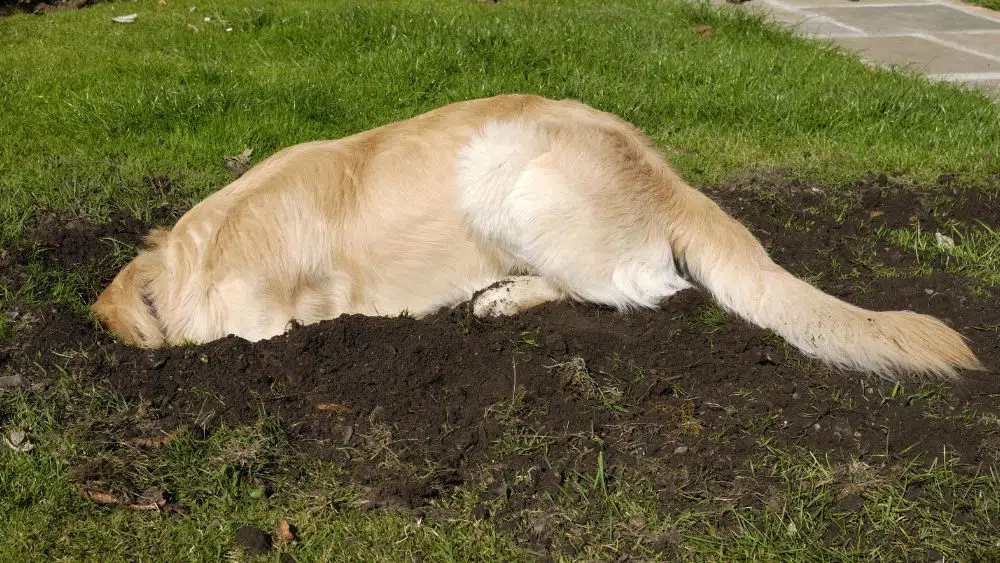
Any pup owner will tell you that dogs love to dig. It might be hardwired in their DNA or simply something they enjoy. Even though it may feel like it, your pup isn’t trying to get back at you by destroying your backyard. First, figure out why they’re digging. If it’s excess energy, redirect with midday walks, extra-intense morning playtime, a furry friend to play with, or challenge toys.
Consider placing chicken wire or rocks over common dig areas discourages the act, or designate an “okay to dig” area in your yard with sand or loose soil. Treat digging the same as inappropriate chewing and don’t punish after the fact, as your pup won’t understand why they’re in trouble.
Tip: Dogs often dig for cool dirt on hot days or if their water runs out. Don’t leave your dog outside for extended amounts of time, and always give them water and shade.
Damaging Crate, Doors, or other Enclosed Spaces
Dogs cannot be kept in small spaces 24/7, but crate training is a good idea. Kenneling is safer for travel, they may need to be boarded, and most dogs enjoy having a crate as a safe space to rest. But it does take pups time to adapt to crates, especially if you’re crating them and leaving (they do love their humans, after all).
Thorough exercise is helpful, as it tires them out so they don’t have the energy to charge doors or kennel walls. Should the problem persists, reach out to your vet or a dog trainer to get to the root of the behavior, especially if they’re at risk of injuring themselves when trying to escape.
Tip: Destroying a space their confined in is often a sign of anxiety. Remember your pup is using what means they have to communicate. It’s your responsibility to listen.
Breathe Easy
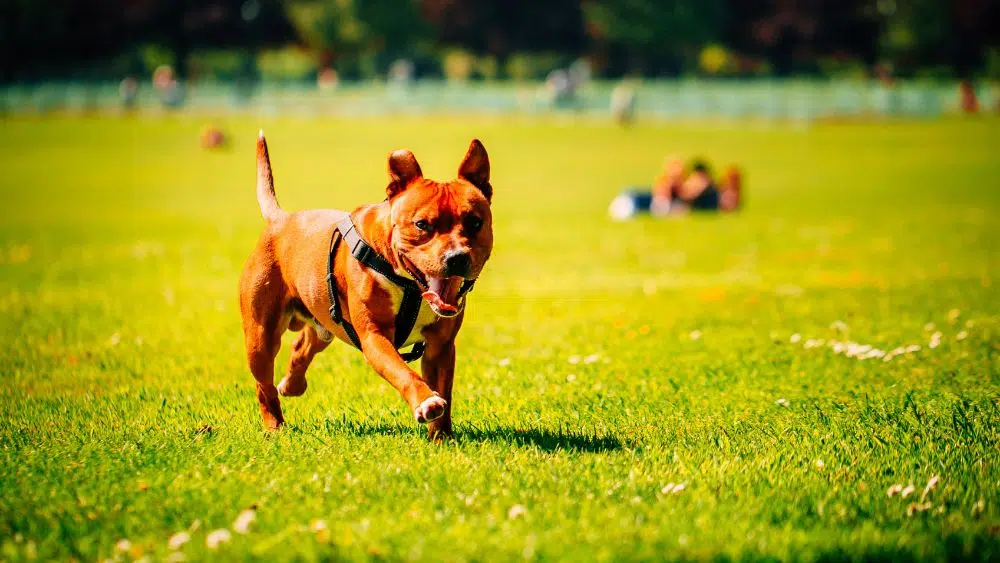
No matter what happens, know your puppy isn’t perfect. They might have accidents or break things or chew up valuables; that’s all a normal part of growing up. The good news is you can often redirect destructive energy to something safer and less costly.
Knowing what you’re committing to, planning ahead, and staying levelheaded will do wonders for your relationship with your dog. By starting out on the right paw, you’ll soon understand why new homeowners often seek out a new pup, and why dogs are a human’s best friend.
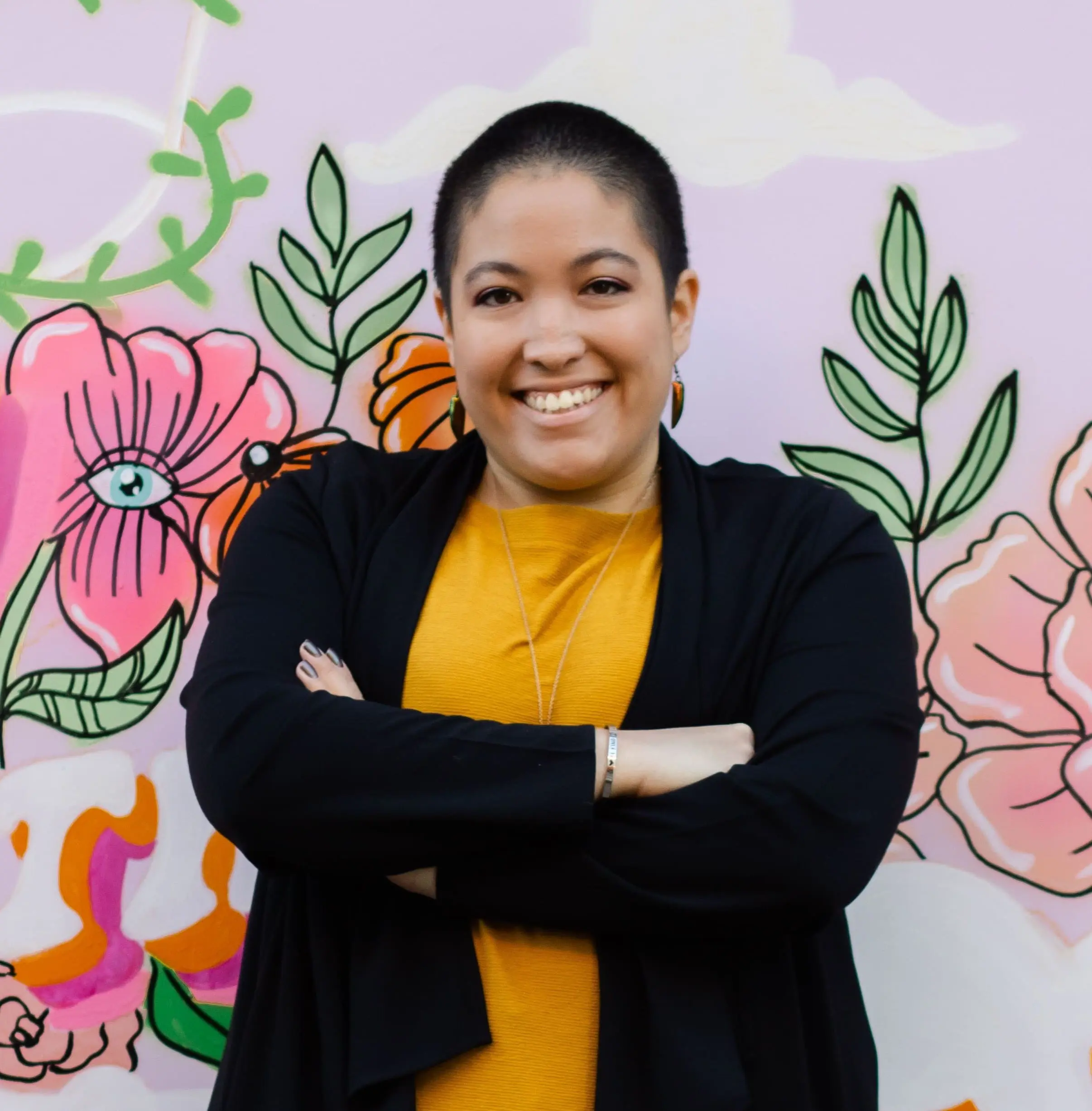
Kian Zozobrado joined Builders Digital Experience (BDX) in 2019 as a content writer. A graduate of Southwestern University with a degree in English, Kian is passionate about the written word and making connections. Outside of work, Kian also serves as president of the Board of Directors for the Writers’ League of Texas.
